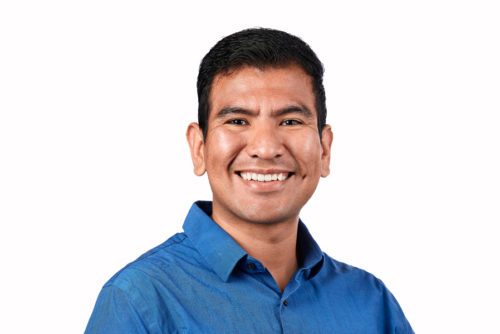PHX Perspectives | January 29th, 2021
The COVID-19 pandemic is highly characterized by the health disparities it perpetuates among our most vulnerable populations. Hospitalization rates for COVID-19 are roughly 5-times higher for Native Americans, Alaska natives, and African Americans, and 4 times higher for Latinx, compared with non-Hispanic whites. Morbidity rates among African Americans are more than 3-times higher and mortality rates are 6-times higher in predominantly black communities compared to predominantly white communities. Although the pandemic disproportionally affects ethnic and racial minorities, these groups are also less likely to take a vaccine even if it is available to them. As public health advocates, we have an important role to educate our communities and a duty to strive for an equitable access to the vaccine.
The COVID-19 vaccines, which are up to 95% effective, have the potential to save hundreds of thousands of lives in the U.S. and millions more across the world. While producing enough vaccines and distributing them efficiently and equitably is extremely important, it is of paramount importance to ensure as many people as possible take them. Yet, as the history of vaccines shows, that is not always simple.
There are several reasons why people may decide not to take a vaccine. These reasons can range from a small percent of anti-vaxxers, to those who are hesitant to take the vaccine due to its record-breaking development and approval times, or those who believe they are not in a high-risk group and believe they do not need it. However, for ethnic and minority groups the history of past scientific and medical misconducts leads to a distrust of the medical establishment.
For African Americans of a certain age the Tuskegee study, an infamous syphilis experiment, still looms on their minds. In order to track the disease’s full progression, researchers withheld penicillin even though it became the standard treatment 15 years into the experiment. As a result, many men died or experienced other severe health problems due to their untreated syphilis, including blindness and insanity. Coupled with other individual experiences with healthcare, this can lead to a mistrust in the medical establishment that can translate to a lower uptake in vaccines.
More recently, years of punitive immigration policies from the previous administration might make Latinx immigrants, especially the 11 million undocumented immigrants, skeptical about taking a vaccine. Over the past four years, they faced everything from raids by immigration enforcement authorities to a Public Charge rule that threatens future citizenship for using public benefits. The mere existence of these policies has caused some immigrants, including the millions of frontline food and service workers who must work in person and have contact with others, to abstain from any sort of health care for fear of deportation.
Unless racial and ethnic minorities are vaccinated, the pandemic will linger. An appropriate and equitable COVID-19 response needs to acknowledge the challenges and reasons why minorities are less likely to vaccinate and to alleviate these challenges. It is important to build trust among these groups through health education and health equity initiatives.
As public health advocates, it is our responsibility to educate communities on the safety and effectiveness of the COVID-19 vaccines. This should come from a place of cultural humility, acknowledging the reasons why people might be hesitant to take a vaccine, but without automatically assuming resistance to vaccines. Provide accurate information about vaccines and make it easily accessible. Furthermore, confirming that the educational resources are in the appropriate languages, at the appropriate literary level, and sharing them through the appropriate communication channels can help to reach your target community more effectively.
Disparities can also be due to inappropriate or ineffective outreach. Beyond an educational campaign, we must facilitate vaccine administration to disenfranchised communities. This can be achieved through mobile vaccination sites in neighborhoods they might not reach otherwise, and by collaborating with community health centers, schools, and local employers with good presence in these areas to encourage community members to vaccinate.
A “silver lining” of the raging pandemic is that it could help pave the road towards a more equitable world. COVID-19 has taught us that the collective health of our communities is determined by the health of all the people that comprise it. The racial and political injustices that threatened the health of our communities of color are the same that now threaten our collective health. Addressing health disparities now can lead to a new kind of “herd immunity,” whereby resistance to the spread of disease is achieved when a high proportion of individuals— across all racial, ethnic, and social class groups—are protected from negative social determinants of health.

